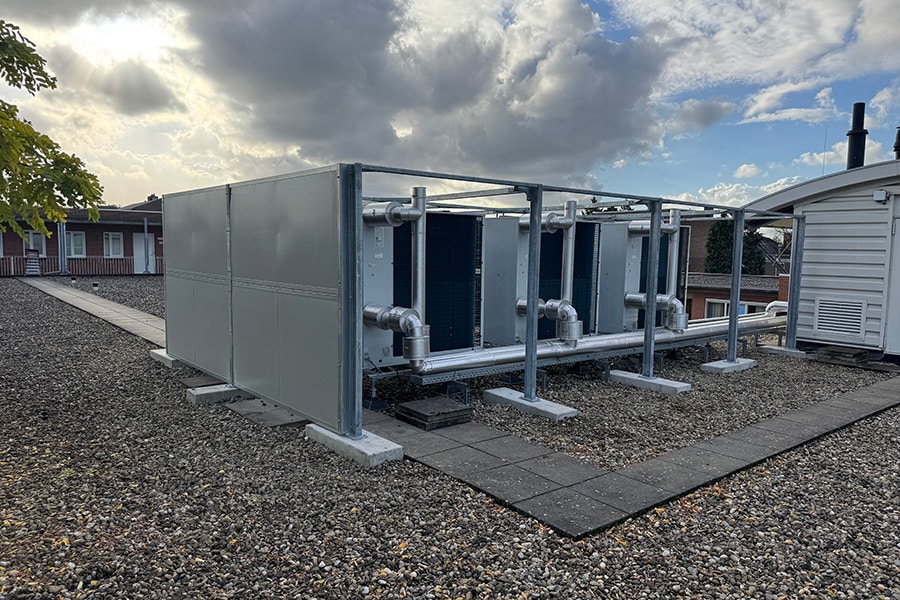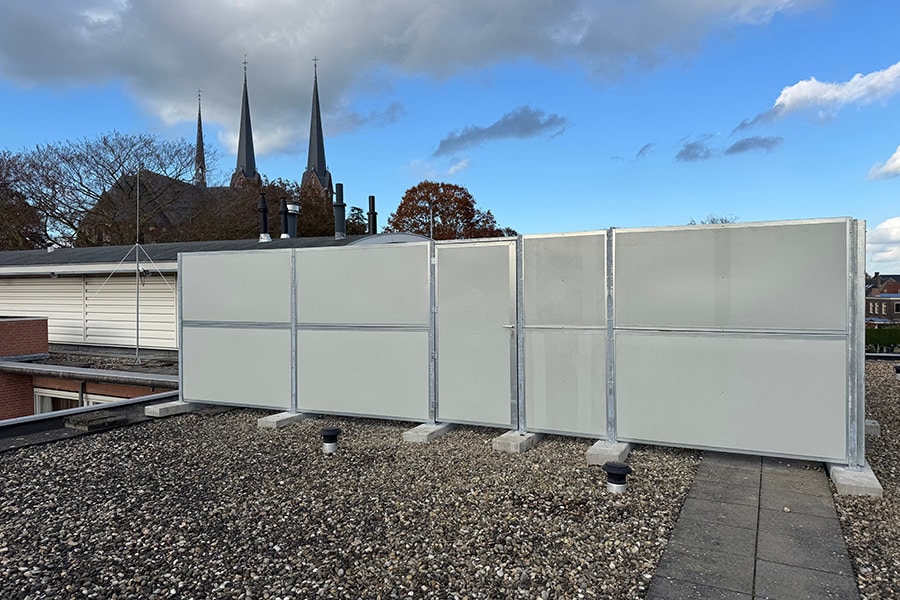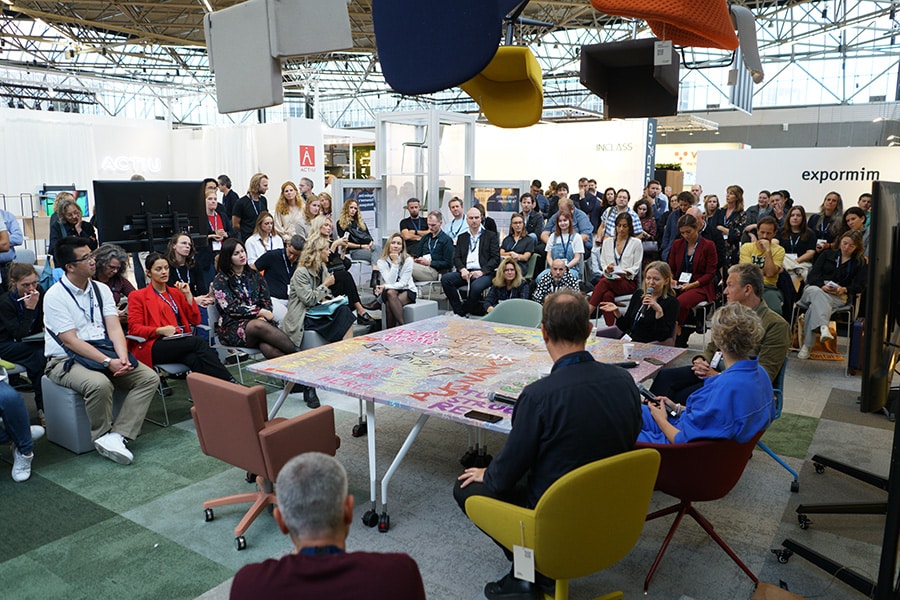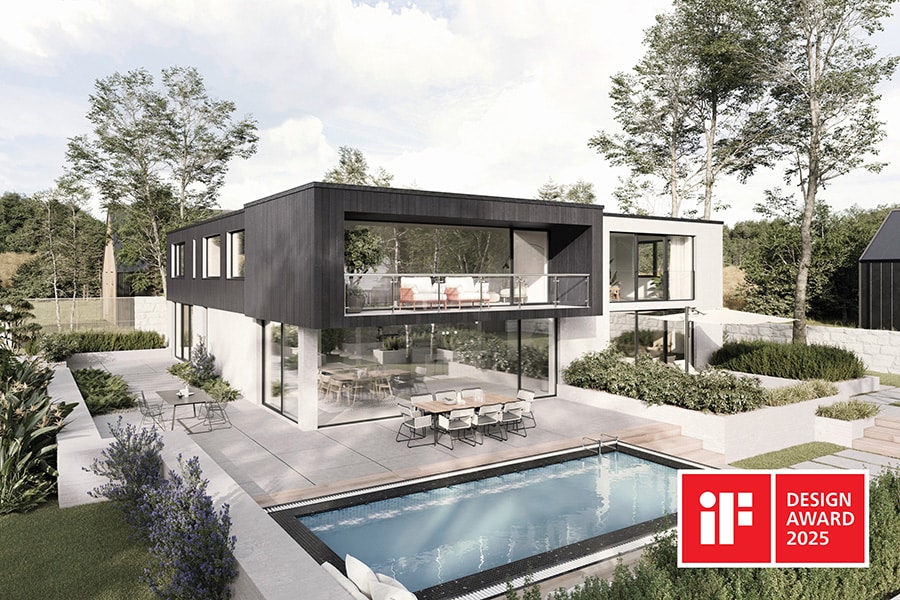
Aesthetic solutions to noise pollution
Innovative roof guards combine noise reduction with aesthetics
With the increase of installations such as heat pumps and air handling systems on roofs, the demand for aesthetic and effective noise reduction solutions is growing. Modubar responds to this with innovative systems for shielding roof installations that combine functionality with a sleek appearance. "Our noise screens are more than just a technical solution; they are designed to fit well with the architecture," says Arjan Kick, project manager of Modubar.

Modubar recently completed a project on the roof of a healthcare facility in Kaatsheuvel. Here, three heat pumps were causing noise pollution in the neighborhood. "Together with the care institution, we placed an L-shaped construction to reduce the noise pollution," Kick explains. Thanks to the sound-insulating steel plates, the noise pollution was successfully reduced. Aesthetically, the light gray panels also fit nicely with the building, blending in with the overall appearance. "Our updated Noise-Reducer noise barriers have a much tighter finish and are well liked by our customers."
Customization and sustainable innovations
Modubar offers architects extensive options in finish and color, supplementing the standard steel palette with all possible RAL colors. Kick explains, "Architects appreciate this customizability, as the screen is not only functional, but also fits well with the design of the building. For example, we recently installed a screen with plastisol coating and powder-coated U-frames and column posts for a very sleek and modern result."
In addition to traditional materials, Modubar is also working on sustainable innovations, such as using sheep wool instead of rock wool for sound absorption. "This modification is a nice step toward environmentally friendly solutions. In the Netherlands, we have a surplus of sheep's wool, and by using it, we are giving this material a second life. We hope to roll out this development further in 2025," Kick said.
Flexible collaboration with architects
Working with steel construction companies and architects makes Modubar especially flexible. "We can step in at any time, but we like to see that during construction, thought is immediately given to concealing the installations on the roof. Architects often already do this, and then you kill two birds with one stone. A structural engineer only has to look at the situation once; this saves time and ensures an optimal result. We like to think with you about any challenging situation."



